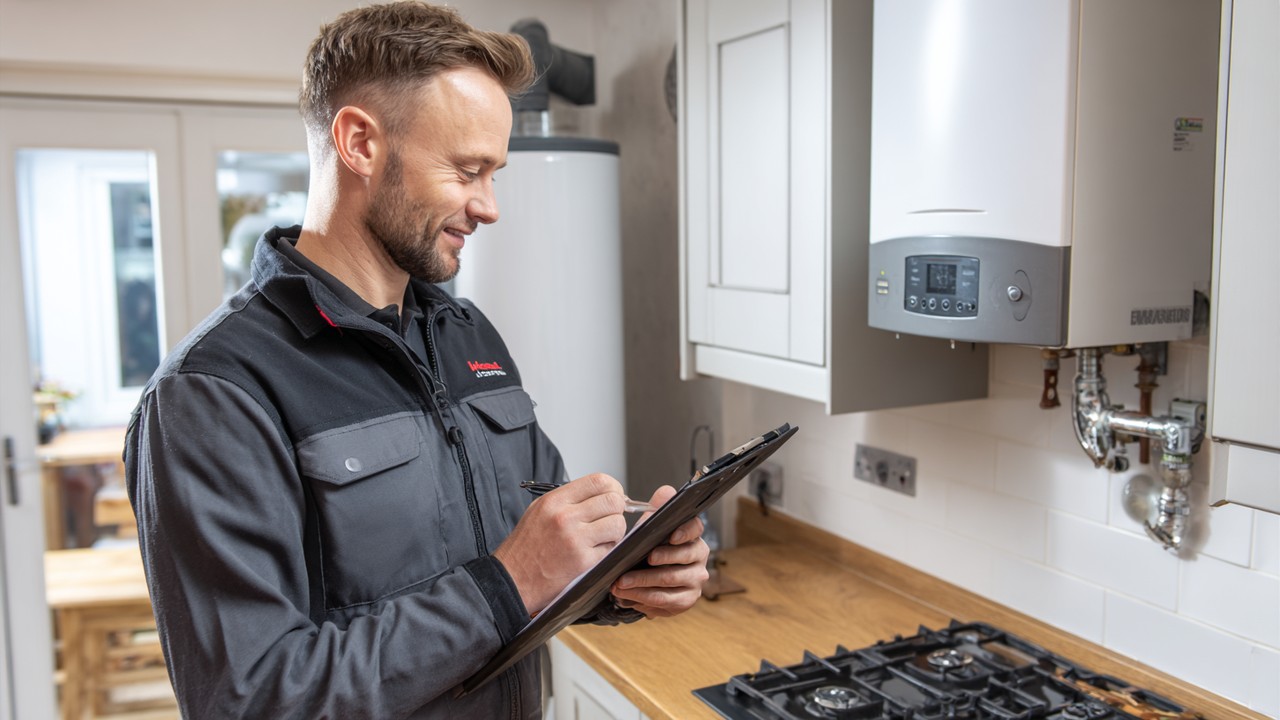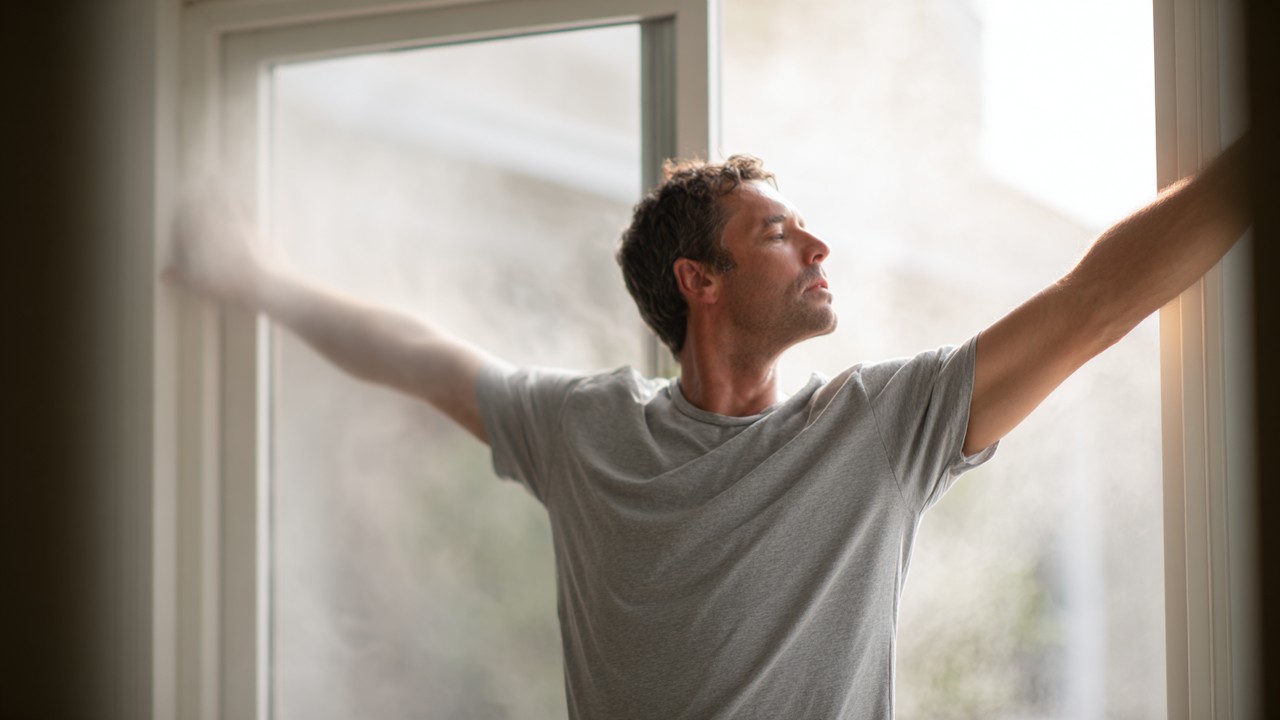Gas safety is a vital concern for anyone living in rented accommodation. Understanding the responsibilities surrounding gas safety not only protects tenants from potential hazards but also ensures landlords uphold their legal duties. Knowing your rights and how to spot risks can make all the difference in maintaining a secure and comfortable home environment.
Understanding Gas Safety Responsibilities for Tenants and Landlords
Gas safety in rental properties is about ensuring all gas appliances, fittings, and flues are installed, maintained, and operated safely to prevent accidents such as gas leaks, fires, or carbon monoxide poisoning. This is especially important in rented homes where tenants rely on landlords to provide safe living conditions.

Landlord Legal Obligations Regarding Gas Safety Checks and Certificates
Landlords in the UK are legally required to carry out an annual gas safety check on all gas appliances and installations in their rental properties. This includes boilers, cookers, fires, and any pipework connected to these appliances. The check must be conducted by a registered Gas Safe engineer, who will inspect the equipment to confirm it is safe to use.
Upon completion, the landlord must provide tenants with a copy of the Gas Safety Record (often called a CP12 certificate). This document outlines the inspection results and any remedial work carried out to ensure safety. It serves as proof that the property complies with the Gas Safety (Installation and Use) Regulations 1998, which set out the safety standards landlords must meet.
Failing to carry out these checks or provide the necessary documentation can lead to severe legal consequences, including fines or imprisonment, as well as putting tenants at serious risk.
Tenant Responsibilities for Reporting Gas Appliance Issues and Allowing Access for Inspections
While landlords bear the primary responsibility for gas safety compliance, tenants also have important duties. They must:
- Report any suspected problems with gas appliances promptly, such as unusual smells, strange noises, or malfunctioning equipment.
- Allow landlords or authorised Gas Safe engineers reasonable access to the property to carry out inspections or repairs.
Tenants should never attempt to fix gas appliances themselves, as this is dangerous and illegal without proper qualifications. Instead, alerting the landlord immediately can prevent minor issues from escalating into hazardous situations.
Overview of Relevant UK Laws and Regulations
The cornerstone legislation governing gas safety in rental properties is the Gas Safety (Installation and Use) Regulations 1998. This law mandates that landlords must ensure all gas equipment is safe and properly maintained. It also requires the use of qualified engineers registered with the Gas Safe Register for any installation, maintenance, or inspection work.
Additional regulations cover the installation and ventilation of gas appliances to minimise risks like carbon monoxide build-up. The law empowers tenants with rights to safe living conditions and enables enforcement actions against landlords who neglect their duties.
Importance of Registered Gas Safe Engineers for Maintenance and Repairs
Using a Gas Safe registered engineer is not just a legal requirement but a crucial safety measure. These professionals have undergone rigorous training and assessments to work safely with gas. They possess the expertise to identify hidden dangers such as faulty seals, cracked pipes, or blocked flues that untrained individuals might miss.
Landlords must ensure any maintenance, repairs, or installations are completed by these registered engineers and keep records of all work done. Tenants should verify the credentials of anyone claiming to be qualified before allowing access to their homes.
In essence, gas safety in rental accommodations relies on a clear partnership: landlords must provide safe, inspected equipment and documentation, while tenants must stay vigilant and report concerns promptly. This shared responsibility protects everyone in the household and helps maintain a secure rental environment.
Recognizing Common Gas Safety Hazards in Rental Homes
Gas safety hazards can lurk unnoticed in many rental properties, posing severe risks to tenants' health and wellbeing. Being alert to common dangers and understanding the warning signs can prevent accidents and save lives.
Typical Gas Safety Risks Tenants May Encounter
Among the most frequent gas-related hazards are faulty boilers, gas leaks, and carbon monoxide poisoning. Boilers that are poorly maintained or nearing the end of their lifespan can develop cracks or leaks, leading to the release of dangerous gases. Similarly, gas leaks from damaged pipes or connections can cause explosions or asphyxiation if undetected.

Carbon monoxide, a colourless and odourless gas, is especially treacherous. It binds with haemoglobin in the blood, preventing oxygen transport and causing symptoms ranging from headaches and dizziness to unconsciousness and death. Faulty appliances or blocked flues are common sources of carbon monoxide in homes.
Signs of Unsafe Gas Appliances and Installations
Tenants should be vigilant for telltale signs of unsafe gas equipment, such as:
- A yellow or orange flame instead of the usual blue on gas appliances, indicating incomplete combustion.
- Soot or black marks around the appliance or flue terminals.
- Pilot lights that frequently go out.
- Strange smells resembling rotten eggs (often added to gas as a warning).
- Unusual noises like banging, whistling, or gurgling from boilers or pipes.
Noticing any of these signs should prompt immediate reporting to the landlord or a Gas Safe engineer to investigate further.
How Poor Ventilation and Blocked Flues Increase Danger
Proper ventilation is critical for gas appliances to function safely. Without adequate airflow, poisonous gases like carbon monoxide can build up indoors. Blocked or damaged flues prevent exhaust gases from safely exiting the property, compounding the risk.
Tenants should ensure that vents and airbricks are not obstructed by furniture or debris and that the flue terminals outside the property are free from nests, leaves, or other blockages. Reporting any concerns about ventilation helps maintain a safe living environment.
Real-Life Examples or Statistics of Gas-Related Accidents in Rented Properties
Tragically, gas-related incidents in rental homes are not uncommon. Each year, incidents involving carbon monoxide poisoning or gas leaks lead to hospitalisations and even fatalities. According to safety organisations, thousands of tenants experience gas leaks annually due to neglected maintenance or faulty appliances.
These sobering statistics highlight why stringent gas safety checks and tenant awareness are indispensable. A moment's vigilance or a timely gas safety inspection can prevent devastating outcomes and give peace of mind.
Importance of Carbon Monoxide Detectors and Smoke Alarms in Rental Homes
Installing carbon monoxide detectors is one of the simplest yet most effective ways tenants can protect themselves. These alarms sound an alert if dangerous levels of carbon monoxide are detected, providing crucial early warning to evacuate and seek help.
Similarly, smoke alarms remain essential for detecting fires, which can sometimes be linked to gas appliance malfunctions. Landlords are legally required to ensure these safety devices are fitted and maintained in rental properties.
Tenants should check regularly that alarms are working, replace batteries as needed, and report any missing or faulty detectors to their landlord. Having these devices in place significantly reduces the risk of injury or death from gas-related hazards.
By recognising the common risks and early warning signs of unsafe gas conditions, tenants can act swiftly to safeguard themselves and their families. Staying informed and vigilant is the best defence against the invisible dangers posed by faulty gas appliances in rental homes.
How Tenants Can Check and Verify Gas Safety Compliance
Ensuring your rented home meets gas safety standards is crucial for peace of mind and personal safety. Tenants have practical steps available to confirm that their landlord has fulfilled legal obligations concerning gas safety, helping to prevent potential hazards before they arise.
Steps Tenants Can Take to Confirm Annual Gas Safety Checks
The law requires landlords to arrange an annual gas safety inspection conducted by a Gas Safe registered engineer. Tenants can proactively verify this by:
- Asking the landlord or letting agent directly for the latest gas safety check documentation.
- Checking that the inspection took place within the last 12 months.
- Confirming any identified faults were promptly repaired.
Being proactive about this simple verification helps tenants avoid living in potentially unsafe conditions and encourages landlords to stay on top of their responsibilities.
What to Look for in a Valid Gas Safety Certificate (CP12)
The Gas Safety Record, or CP12 certificate, is the official document proving compliance. When reviewing it, tenants should check:
- The landlord or property manager’s name and address are clearly stated.
- The property address matches the rented accommodation.
- The date of the inspection is recent (within 12 months).
- A list of all gas appliances and fittings inspected.
- Confirmation that all appliances passed the safety check or notes on any remedial work done.
- The Gas Safe engineer’s name, ID number, and signature.
A valid CP12 certificate is a clear indication that your landlord is meeting legal gas safety requirements. If anything looks unclear or suspicious, tenants should raise these concerns immediately.
How to Request Documentation and What Questions to Ask Landlords or Letting Agents
If you haven’t yet received a copy of the gas safety certificate, it’s perfectly reasonable to request one in writing. When doing so, consider asking:
- When the last gas safety check was carried out.
- Whether any repairs or maintenance were needed and completed.
- If the engineer who performed the inspection is Gas Safe registered.
- What steps will be taken if a gas appliance develops a fault.
Maintaining a polite but firm tone helps establish a constructive dialogue, showing you understand your rights without causing unnecessary conflict.
Using the Gas Safe Register to Verify Engineer Credentials
Every engineer authorised to work on gas appliances must be listed on the official Gas Safe Register. Tenants can visit the Gas Safe Register website or call their helpline to:
- Verify the engineer’s registration number found on the CP12 certificate.
- Confirm the engineer is qualified to inspect or repair specific gas appliances in your home.
- Report any suspicious activity if a supposed engineer is not registered.
This quick verification step protects tenants from unqualified individuals performing unsafe or illegal gas work.
What to Do if Gas Safety Certificates Are Missing or Outdated
If your landlord fails to provide a current gas safety certificate or if you suspect gas safety checks have not been completed:
- Contact your landlord or letting agent to request the documentation immediately.
- If there is still no response or refusal to comply, report the issue to your local council’s environmental health department or the Health and Safety Executive (HSE).
- Avoid using any gas appliances that you believe to be unsafe.
- Seek advice from tenant support organisations or legal advisors about your rights and possible actions, such as withholding rent or ending the tenancy.
Remember, your safety is paramount. Living without evidence of proper gas safety checks is not something to ignore.
By knowing how to verify gas safety compliance, tenants can confidently ensure their homes meet the essential safety standards. Taking these steps not only protects health but also fosters responsible landlord-tenant relationships based on trust and transparency.
Tenant Rights When Gas Safety Is Compromised or Neglected
When gas safety is overlooked or handled irresponsibly, tenants must know their rights and the options available to protect themselves. The law offers several safeguards to ensure tenants are not left vulnerable to unsafe living conditions due to landlords’ neglect.
Legal Protections Available to Tenants if Landlords Fail Gas Safety Duties
If a landlord fails to maintain gas safety standards, tenants are entitled to legal protections under the Gas Safety (Installation and Use) Regulations 1998 and housing laws. These protections mean landlords must provide safe accommodation, and failure to do so can be deemed a breach of the tenancy agreement.
Tenants have the right to:
- Live in a property where gas appliances are safe and regularly inspected.
- Receive a copy of a valid Gas Safety Record (CP12) before moving in and annually thereafter.
- Expect prompt repairs when gas safety faults are reported.
If landlords ignore these duties, tenants can take formal steps to enforce their rights, including reporting the issue to authorities or seeking legal remedies.
How to Report Unsafe Gas Conditions to Local Authorities or Gas Safety Enforcement Bodies
If you suspect your rented home poses a gas safety risk and your landlord is unresponsive, it is crucial to act swiftly. You can report unsafe conditions to:
- Your local council’s environmental health department, which has powers to investigate and enforce gas safety standards.
- The Health and Safety Executive (HSE), which oversees gas safety regulations and can take legal action against negligent landlords.
- The Gas Safe Register, which can verify whether work has been carried out by registered engineers and investigate potentially illegal gas work.
Reporting unsafe gas conditions is a vital step to protect yourself and others from potentially fatal hazards. Authorities can require landlords to carry out necessary repairs or even prohibit the use of unsafe appliances.
Tenant Options for Withholding Rent, Requesting Repairs, or Terminating Tenancy Due to Gas Safety Breaches
When gas safety breaches occur, tenants have several practical options depending on the severity of the issue and the landlord’s response:
Requesting Repairs: Tenants should formally notify the landlord in writing about gas safety concerns and request urgent repairs. This creates a record of communication.
Withholding Rent: Under certain circumstances, and typically after seeking legal advice, tenants may withhold rent if the landlord fails to address serious safety issues. This is a sensitive step and must be handled carefully to avoid eviction risks.
Terminating Tenancy: If gas safety breaches make the property uninhabitable or pose a serious risk, tenants may have grounds to end the tenancy early without penalty, especially if the landlord neglects repairs.
In all cases, documenting correspondence and maintaining records of complaints and repair requests strengthens tenants’ positions in any dispute.
Role of Tenancy Agreements in Gas Safety Clauses and Dispute Resolution
Many tenancy agreements include clauses relating to gas safety, specifying landlord responsibilities and tenant obligations. These clauses often require landlords to provide gas safety certificates and tenants to report faults promptly.
Understanding these clauses helps tenants identify when landlords are breaching their contractual duties. In case of disputes, tenancy agreements form part of the evidence in negotiations or legal proceedings.
Tenants should review their agreements carefully and seek advice if gas safety provisions are unclear or ignored. Mediation services or tenant advisory organisations can help resolve conflicts amicably before escalation.
Support Organizations and Resources for Tenants Facing Gas Safety Issues
Tenants facing gas safety problems are not alone. Numerous organisations provide advice, support, and advocacy, including:
- Citizens Advice: Offers free guidance on tenants’ rights and how to handle unsafe living conditions.
- Shelter: Provides legal advice and support for housing-related issues, including gas safety.
- Gas Safe Register: Offers information on gas safety and how to check engineer credentials.
- Local council housing departments: Can intervene in cases of unsafe rental properties.
These resources empower tenants to take informed action and ensure their safety is never compromised by neglect or poor management.
Understanding your rights when gas safety is compromised helps you act decisively and protects your wellbeing. Tenants who are proactive and informed stand a much better chance of resolving issues swiftly and securing a safe home environment.
Practical Tips for Tenants to Maintain Gas Safety in Their Homes
Keeping gas appliances safe is a shared responsibility, and tenants play a crucial role in day-to-day gas safety maintenance. Simple checks and best practices can prevent hazards and ensure the home remains secure.
Daily and Periodic Safety Checks Tenants Can Perform
Tenants should:
- Be alert to any unusual smells of gas, often described as a faint rotten egg odour added for detection.
- Check pilot lights regularly to ensure they burn with a steady blue flame.
- Look out for visible signs of wear or damage around appliances and gas pipes.
- Ensure ventilation vents and airbricks are unobstructed.
- Test carbon monoxide alarms and smoke detectors monthly to confirm they are operational.
These straightforward checks help identify problems early before they escalate into emergencies.
Best Practices for Using Gas Appliances Safely and Efficiently
Safe usage habits include:
- Never blocking or covering gas appliances or flues.
- Avoiding the use of portable gas heaters without proper ventilation.
- Following manufacturer instructions carefully for all gas appliances.
- Turning off appliances when not in use, especially during extended absences.
Good habits minimise risks and improve appliance longevity.
Importance of Promptly Reporting Faults or Unusual Smells
If a tenant notices any faults, noises, or smells related to gas appliances, they must inform the landlord or letting agent immediately. Delaying reporting can worsen hazards and put lives at risk.
Tenants should keep a record of all communications concerning gas safety to ensure accountability.
Installing and Maintaining Carbon Monoxide Alarms
Installing a reliable carbon monoxide alarm is essential. Tenants should:
- Position alarms near sleeping areas and gas appliances.
- Regularly test alarms and replace batteries as needed.
- Inform landlords if alarms are missing or faulty.
These alarms provide life-saving early warnings if dangerous gases accumulate.
Emergency Procedures for Suspected Gas Leaks or Poisoning
In an emergency, tenants must:
- Do not operate electrical switches or appliances – sparks can ignite gas.
- Open windows and doors immediately to ventilate the area.
- Turn off the gas supply at the meter if safe to do so.
- Evacuate the property immediately.
- Call the National Gas Emergency Service on 0800 111 999 from a safe location.
- Seek medical help if anyone shows symptoms of carbon monoxide poisoning (headache, dizziness, nausea).

Knowing these steps can save lives and prevent disasters.
By adopting these practical measures, tenants contribute significantly to maintaining a safe gas environment in their homes. A cautious, informed approach pays dividends in comfort and security.
Empowering Tenants to Advocate for Safe Gas Practices in Rentals
Being well-informed about gas safety rights and responsibilities equips tenants to advocate effectively for their wellbeing. Empowered tenants foster safer rental communities and encourage landlords to uphold high standards.
How Tenants Can Communicate Effectively with Landlords About Gas Safety Concerns
Clear, respectful communication is key. Tenants should:
- Report concerns promptly and in writing.
- Request evidence of gas safety checks.
- Keep a record of all correspondence.
- Follow up regularly to ensure actions are taken.
This approach encourages open dialogue and helps build a cooperative relationship focused on maintaining a safe living environment for everyone involved.
